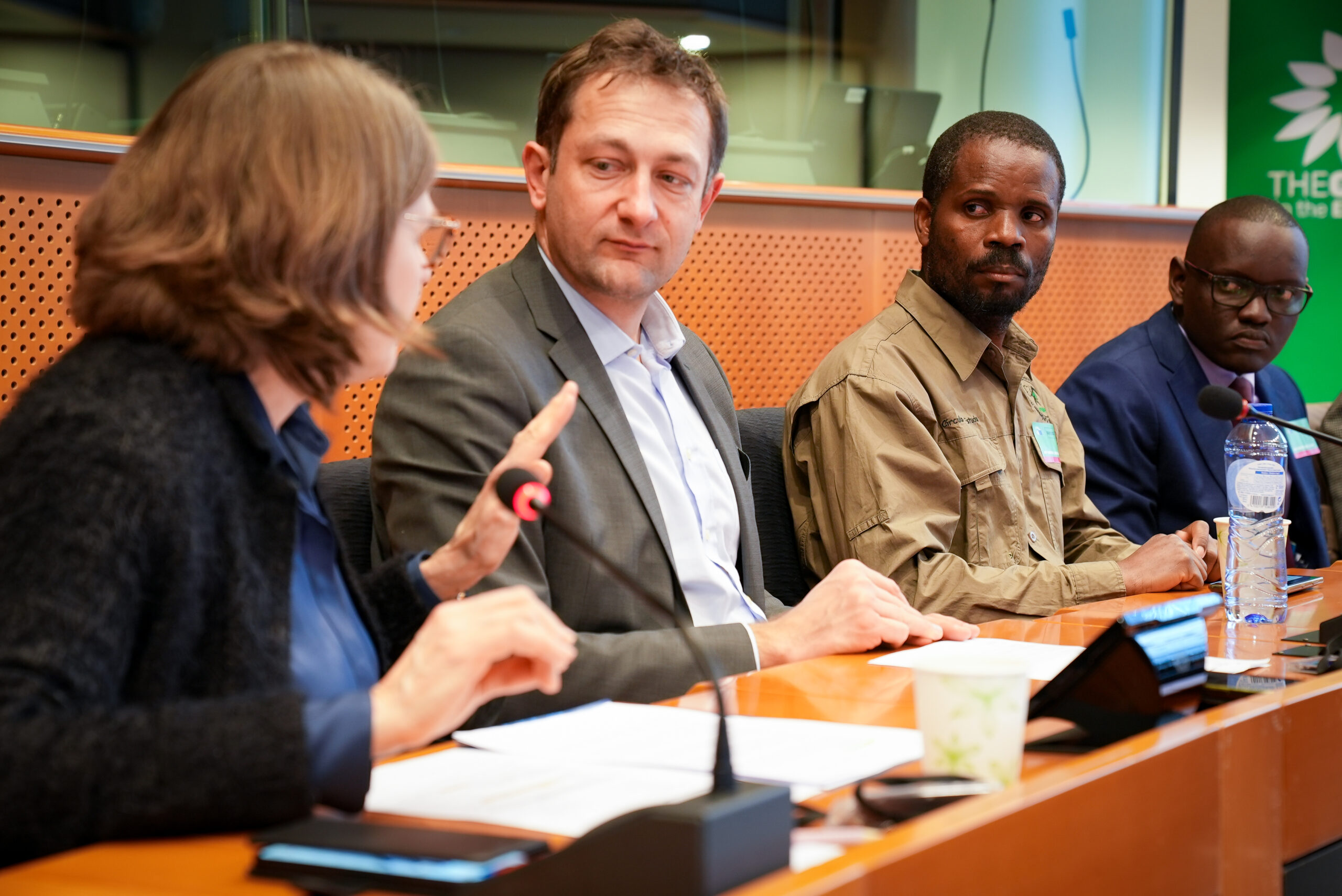Smallholder farmer representatives called on Heidi Hautala and Christophe Hansen in the European Parliament for better collaboration with farmers that supply the EU market. Brussels, January 2023 © Steven De Winter / Solidaridad.
The EUDR is a long overdue and absolutely necessary first step in tackling endemic deforestation. It is a framework that can be built upon to not only limit the EU’s contribution to deforestation in global supply chains, but to set the stage for wider change. We do also see the challenges in implementation that many actors involved are facing, first and foremost smallholder producers. The FAQ and Guidance documents that have been published now, are late and insufficient in itself. The proposal of the European Commission to extend the ‘phase in’ of the EUDR has therefore become unavoidable now.
This proposal should not mean reopening the EUDR decision process. This would once again open the law for debate, for change, and potentially for watering down. At the very minimum it could delay it further. Therefore if there must be a ‘phasing in’ of the EUDR’s requirements, we ask for the Member States and European Parliament to act decisively: extend the phase in, but do not reopen the EUDR for discussion. Give greater clarity to the actors involved in EUDR by all means, but avoid arresting the momentum for change the EUDR is already inspiring. The EUDR is stimulating action among stakeholders in producing countries and spurring companies to invest in long overdue improvements to their operations in producing countries. It is important that the energy and impetus of these activities remain.
Yesterday major companies and civil society organizations in the cocoa sector, including Solidaridad, already jointly opposed any calls to reopen the EUDR political discussion: Cocoa Coalition statement EUDR.
Many actors have used potential unforeseen negative consequences of EUDR for smallholders as an argument to advocate for a delaying the regulation. Solidaridad wants to stress that a delay alone will not ensure that the millions of smallholders in the sectors covered by the EUDR will be any better off. Article 30 of the Regulation requires the EU and Member States to engage in a coordinated approach with producer countries and to develop a comprehensive and strategic framework for such engagement.
After 15 months the Commission has now presented an insufficient and broadly disappointing Strategic Framework for International Cooperation Engagement. The Framework is mainly an overview of existing programmes. The Team Europe Initiative to support implementation amounts to a paltry €80 million euros in funding from just two Member States. This can only be seen as a very first step.
To really make EUDR work for both nature and the people at the start of global supply chains, ambitious partnerships with producing countries are essential. These need to be tailored to the scale of the challenge and focus on addressing the root causes of deforestation, and they need to include support for the millions of smallholders affected. A longer phasing in period should be used by the European Commission and Member States to deepen their understanding of the complex issues affecting smallholders in these different contexts and to prepare a more substantial strategy for mitigating and eliminating the risks they face.

